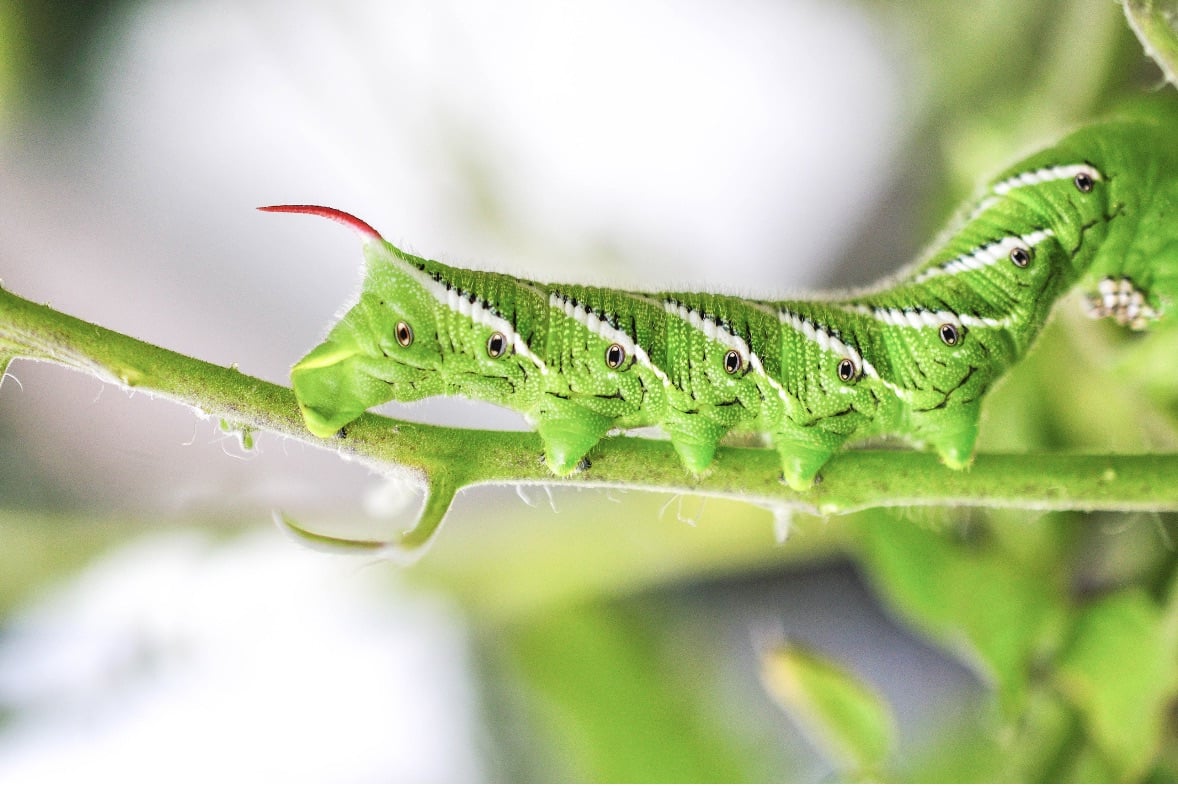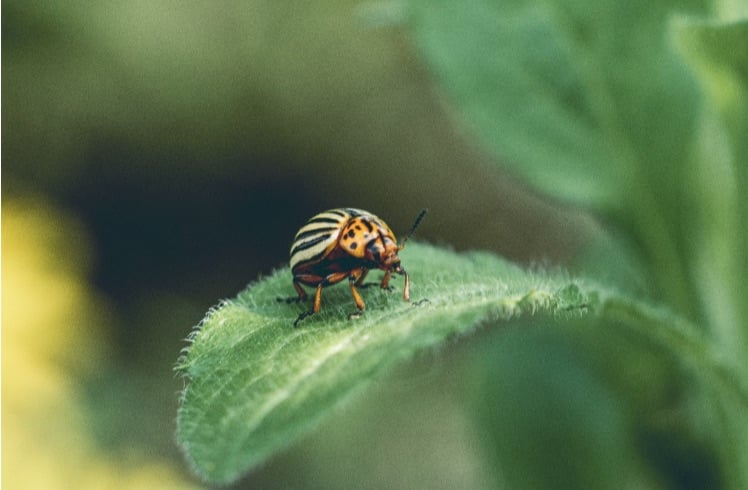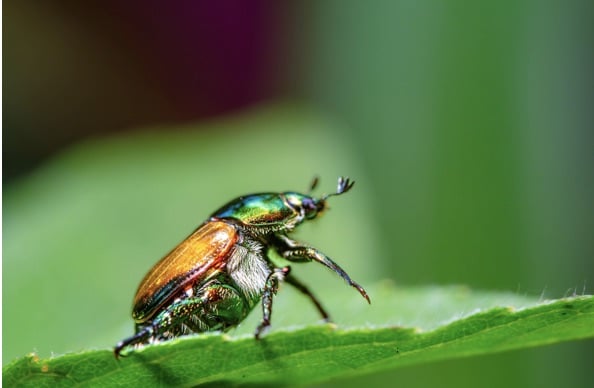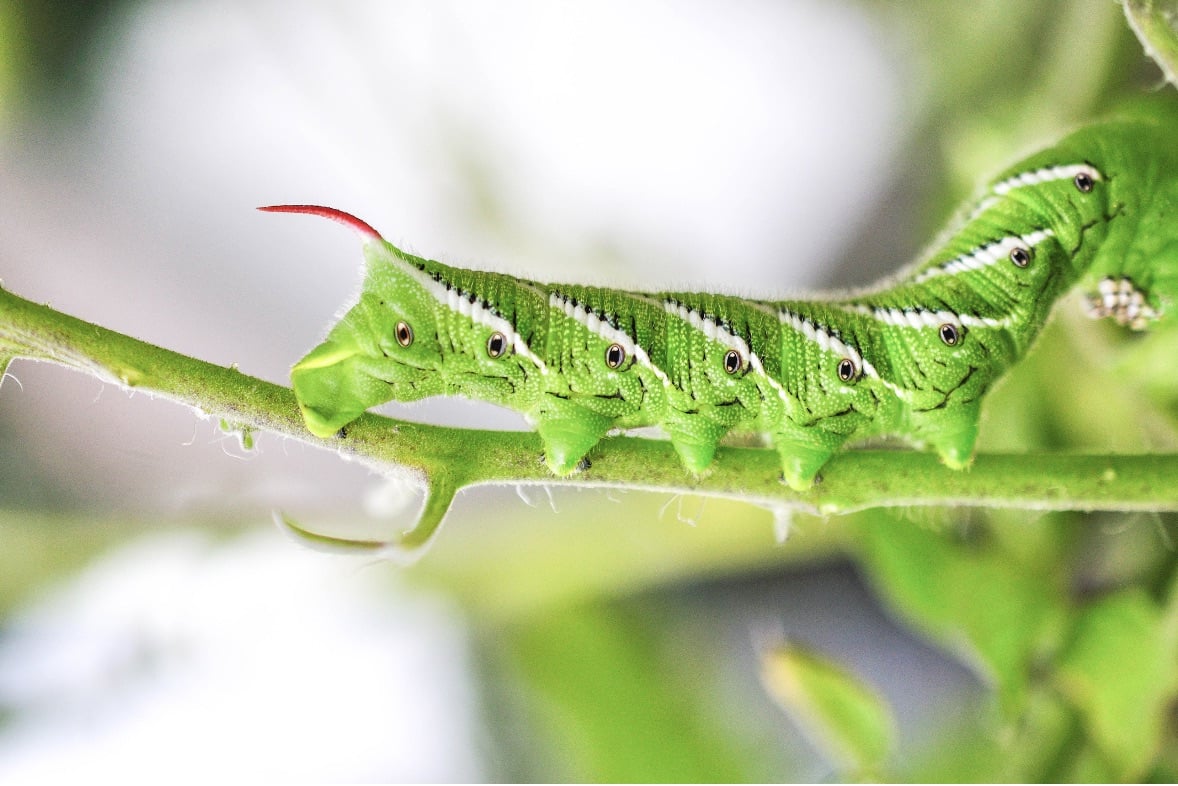Gardening provides us with many joys, but there are, of course, hurdles to jump. The fact of the matter is that you can’t have a garden without garden pests. You can spray for them if you want to take care of them quickly. Or, if you can’t bear to kill them them, you can let them run wild and eat holes through all of your beautiful produce.

There is a middle ground, though. This eco-conscious pest control mostly takes care of itself, once you put the ground work in. With a little research, you can learn how to attract animals that will prey on unwanted insects and will help you to put a damper on the damage done by your garden pests.
This way of consciously inviting insects, birds, and mammals into your garden is a great option for those of us who are averse to spraying pesticides. Welcoming predators into your garden to munch on your pest population will save a lot of your vegetables from nibbles and ruin, and will save you time on squishing by hand. Let’s discuss a few common garden insect pests and how you can attract critters that find these pests tasty and will help you to control the pest population.
Aphids
Aphids are an innocuous insect in small numbers. In fact, there could be aphids taking up residence on every one of your plants, happily taking small bits of sap from their stems, without you really noticing they are there. The problem arises when their numbers grow. When too many aphids are dining on your garden, they wind up drawing out too much of the fluid from the plants, leading to yellowing, withering, and the inability to thrive.
Luckily, there is an abundant and easily attractable insect population that will happily snack on your excess aphids. The common ladybug is a wonderful predatory insect (which will come up again later). Some of the ladybug’s favorite foods are aphids and pollen, so if you already have an aphid problem, you’re halfway to luring these beneficial insects to your garden plot. Plant flowering herbs like dill, calendula, or fennel, which produce ample pollen in their small blooms, to make your garden an ideal home for ladybugs.
Colorado Potato Beetles
Colorado potato beetles have long made their home far beyond the Rockies, and can be found in most of the continental U.S. This beetle doesn’t only feed on potato plants, but on other nightshade plants as well, like eggplant and peppers.

Once Colorado potato beetles appear, they can quickly multiply and will munch on the leaves of your plants until nothing but stems remain. These pests, like aphids, can be controlled in part by ladybugs in the garden.
The ladybugs can’t eat the mature Colorado potato beetle, hindered by their similar size and the hard exterior of the pesky beetle, but luckily they love to devour their eggs. The ladybugs will be able to quickly cut down on your population of Colorado potato beetles, eating as many of the small orange eggs they can find on the undersides of leaves. The beetles go from egg to adult in only about a week, so once the ladybugs start eating the eggs, you’ll quickly see a decrease in these particular pests.
Tomato Hornworms
Tomato hornworms, which will pupate to become the five-spotted hawk moth, love to feed on tomato leaves and other nightshades. Their small eggs are often eaten by ladybugs if they find them. Once the eggs hatch and become the rather large caterpillars, the most effective way to get rid of them is to pick them off the plants and dispose of them every time you come across one.
If you don’t want to squash them or toss them in a bucket of soapy water, you can try to attract parasitic wasps to take care of the problem for you. Adult paper wasps feed on nectar, so having flowers in your vegetable garden will help to attract this helpful insect. Small, prolific blooms like yarrow are very attractive to these types of wasps. Once the wasps are visiting your garden, females will target tomato hornworms as a place to lay their eggs.
If you see a worm with oblong white growths on its back, it means a wasp has chosen the hornworm as the host for her eggs. The eggs are laid below the worm’s skin, and the baby wasps will eat some of the worm, severely weakening (and often killing) it, before erupting through the growths on its back.
Japanese Beetles
Japanese beetles can be a tough nut to crack once they start to terrorize your garden. They tend to appear in droves, and because they are an introduced pest, they can be rather difficult to get rid of. Luckily for us, many animals find the grub stage of these beetles to be very tasty.

Nocturnal garden visitors, like raccoons, skunks, and opossums, will dig for Japanese beetle larva and devour as many of the plump white grubs they can get their paws on. Domestic fowl, like ducks, guineas, and chickens, also love to eat these grubs. Chickens and ducks will often also eat Japanese beetles in their adult stage, drawn in to hunting for the bugs by their ultra shimmery and reflective shells.
If you aren’t keen on waiting around for small mammals to wander through your neighborhood and don’t have an interest in keeping backyard fowl, other garden friends that can help you to control your Japanese beetle population are common songbirds, like robins and cardinals. These birds are attracted to the beetles in the same way that domestic fowl are, and take every opportunity to eat a few as often as they can.
To make sure these helpful birds visit your garden frequently, make your space inviting by providing them with water for drinking and bathing, nesting material, and a variety of food (but no so much that they don’t want to eat your bugs).
While this method of battling bad bugs in your garden won’t eradicate all of your pests, you can get good results suppressing the pest population. Make your garden inviting to the animals with an appetite for your pests, and you’ll find much less damage on the beautiful garden you’ve worked so hard to make beautiful and productive.






